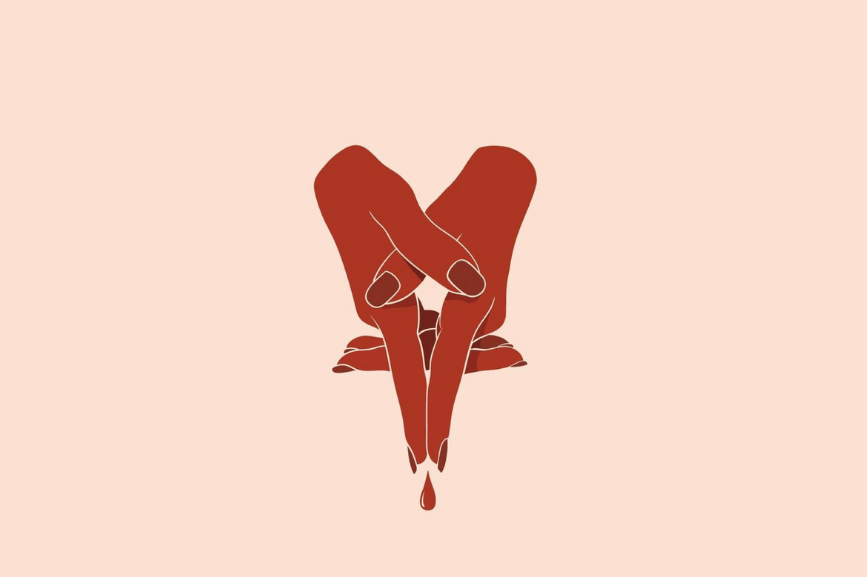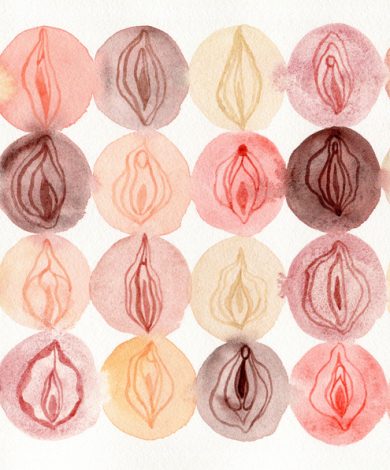Writing a letter to my vagina-- it’s an exercise that I do periodically and suggest…
Change
Why Do We Need A Chamber of Mothers? Because Moms Get Sh*t Done.
November 19, 2021 • By pstprtm

Birth is a trauma that requires recovery. It is raw, bloody, and doesn’t fit into other peoples’ timelines. Women have been forced to stoically endure the ravages of postpartum while tending to office work, presenting at meetings, teaching, healing the sick, taking food orders, cleaning bathrooms, and stocking warehouses. We cannot continue to work and bleed. We cannot recover from trauma without rest. We won’t #BuildBackBleeding and the Chamber of Mothers is the rallying cry letting Congress know we are done being inconvenient.
The Chamber of Mothers is here to provide a straightforward way for motherhood leaders, organizations, and advocates to assemble in order to make lasting change. Working as a collective, we can influence millions of people, making it easy to get involved in advocacy and make a true impact. This is a long game.
Mothers are tired, but they want to do more. They have had enough. The Chamber will welcome their gifts and offers, and redirect them to the right place. The Chamber of Mothers is modeled after the Chamber of Commerce, and will similarly pool stakeholders and resources to protect the best interests of mothers. Leveraging the power of social media, the Chamber will direct all mothers and advocates in aligned action.
www.chamberofmothers.com ~ IG: @chamberofmothers ~ Twitter: @chamberofmoms
***
Daphne Delvaux of The Mama Attorney
Blessing Adesiyan of Mother Honestly
Erin Erenberg of Totum Women
Raena Boston of The Working Momtras
Lauren Smith Brody of The Fifth Trimester
Alexis Barad-Cutler of Not Safe For Mom Group
Cassie Shortsleeve of Dear Sunday Motherhood
Pooja Lakshmin, M.D. of Women’s Mental Health Doc & Professor at George Washington University
Founded by these eight incredible women and mothers paving the way to create change in our government and get families the support they need and deserve. As one of the only countries without federal paid medical leave we are past due to update policies. To demand more. To get more.
We were able to connect with four founding members to learn more about the Chamber of Mothers, what they are doing, why this is important, and how we can support this mission. We want to thank Lauren Smith Brody (LSB), Erin Spahn Erenberg (ESE), Raena Boston (RB), and Blessing Adesiyan (BA) for speaking with us so quickly so we could get this information to you ASAP! We moms have to stick together right? Right.
Click here to get started.
Why do you feel called to be a Founding Mother?
LSB: I’m a gender equity speaker, writer, and consultant who helps businesses retain and support mothers and caregivers. Paid family and medical leave is vital to my work and my clients’ goals. Its inclusion (and then removal….and then reintegration) in the Build Back Better Act was a breaking point for dozens of women who work in this space. Together, we decided that we need a national lobbying group to amplify and support the work of existing advocacy organizations, with our first mission being to #SavePaidLeave.
RB: I’ve been on both sides of paid leave. With my older two children, I didn’t have access to paid leave. As a result, my mental health, bonding with my baby, marriage, and finances suffered. With this last baby, the conversations about national paid leave coincided with her birth. And this time I have access to paid leave through my employer. I feel a strong responsibility to advocate for all families to have access to paid leave.
What is the Chamber of Mothers?
LSB: The Chamber of Mothers is a collective movement to focus America’s priorities on mothers’ rights.
ESE: Modeled after the Chamber of Commerce, the largest lobbying block in the United States, we plan to assemble one million mothers to bring communities together, amplify existing advocacy groups, and demand critical change that lasts.
Why is addressing the lack of federal paid family & medical leave important right now?
LSB: We cannot build back better without the ability to care for our families without losing or leaving our jobs. Paid family and medical leave isn’t just a “nice benefit;” it’s an economic necessity and a human right that needs to be mandated at a federal level to help spur a more equitable recovery for all of America’s families; Physically, mentally, and economically.
ESE: We have an unprecedented opportunity to support advocacy groups like PL+US to advance federal paid leave through Congress. And the time to act is now. Paid family and medical leave is critical to insure that racial and gender equity are at the center of our economic rebuilding and long term growth. Women have lost over 5 million jobs since February 2020 creating a historic “she-cession.” Women of color were hit the hardest. Paid leave is essential to prevent further job loss and help women re-enter the workforce.
RB: Working families, in particular working moms, bore the weight of this country during this pandemic. Many of us sacrificed our careers, earning potential, savings, and mental health in order to be caregivers. The pandemic exposed that our current policies are unsustainable. It’s time to make sure that birthing people can recover from childbirth, families can bond with their babies, and that we have the time and resources to take care of ourselves and loved ones in times of illness.
What happens when we don’t support mothers and families?
LSB: We exacerbate the gender wage gap. 80% of which can be attributed to the Motherhood Penalty. We threaten the viability of our economy, which is only healthy with women’s participation. And we risk our own health and our children’s health.
RB: Quite frankly, it’s killing us and making us ill. Our birth rate is declining. If we don’t have policies that support mothers and families, people will stop having children. You need people to continue a society. We have 25% of women returning to work within 10 days of giving birth. What impact do you suppose that has on maternal and infant mortality rates?
What happens when mothers can’t take time off to take care of their children?
LSB: Paid family leave has been shown to protect the mother’s physical and mental health, baby’s health, father’s bond with child, and the mother’s ability to maintain her income and career. When there’s no leave, all of that is at risk. Right now 25% of American mothers take 10 days or less of leave. This is a health and economic crisis. And it’s not just a mother’s issue. It’s a humanity issue. Every human cares for someone. Everyone deserves the ability to do that sustainably.
RB: Women leave the workforce and employers decide that people who choose to get pregnant are not reliable in terms of hiring and promotions.
What happens to children when their mothers can’t miss work to care for their children?
LSB: Honestly, what happens is that mothers don’t let that happen. They leave or are pushed out of their jobs. That’s why we have 2.8 million fewer women in the workforce now than we did before Covid.
RB: As we’ve seen in the past year and a half, women will leave the workforce, particularly when we have a childcare crisis.
What are the ramifications when mothers are forced to miss work or leave the workforce completely due to lack of federal support?
LSB: They lose their jobs, they lose their status, they lose their income, and their ability to support their families. They lose the investment they’ve made in their education and the years they’ve spent building their careers. And our economy suffers without their participation.
A study by JPM Chase showed that if we had equal participation in the workforce across genders, our GDP would increase by 5%.
ESE: Today, 1 in 3 Americans doesn’t have a single day of paid leave to care for themselves or their loved ones. That’s 113 million people, overwhelmingly women, communities of color, and low-wage working families. 1 in 4 mothers in the US return to work just 10 days after childbirth. The impact on families is devastating, as bonds are interrupted, mothers’ bodies aren’t able to heal and recover, and our very identities are blurred as we lose the opportunity to create healthy boundaries around our work and care-related roles. Bigger picture, we send the message that mothers will be ok, and we’re not. Mothers are hurting, families are suffering. And our fallacy that industry is the only measure of success is crumbling in the light of what the pandemic has revealed.
RB: Decreased earnings, increased gender pay gap, and the difficulty of trying to explain gaps in your resume which leads to unemployment or underemployment.
How do families and communities suffer when there isn’t adequate support for medical leave?
LSB: 51% of FMLA leaves are for people to care for themselves. Every human who lives in a body needs the ability to care for that body.
BA: This is the one we don’t talk about often…we are absolutely setting families up for failure when income is withheld as a punishment for birthing a child. When families take unpaid leave under FMLA, the lack of sufficient funds is a detriment to the parent, children, and newborn. It is something I cannot get over as a mother; to feel like I punish my existing children because of their sibling. Add to that the workers that cannot take any leave at all, and have to use sick days or vacation time to birth a baby and soon return to work. 1 in 5 moms return to work within two weeks of having a baby. In the most financially buoyant country on earth, we must do better. This society continues to undervalue women.
Who is entitled to federal funds?
LSB: The goal is for everyone to have access to paid leave from their job, regardless of their employer, or the state they live in.
RB: The great thing about the current legislation is that family is broadly defined. Non-birthing parents are entitled to leave, adoption, and foster care are also covered. The other great thing is that elder care and time away to take care of one’s own health are included.
We know that was a lot. And we’re just getting started.
Sign up to join the Chamber at chamberofmothers.com and encourage followers to do the same and contact their senator paidleave.us/email-your-moc
Did you have family leave? Did you utilize FMLA? We’d love to hear your story. Click here to share your story and #showusyourleave.
Want to learn about more organizations helping new mothers and families? Click here.
Curious to learn more about your rights in the workplace? Click here.
Learn more about the wildly unethical history of women’s health in the United States here.



